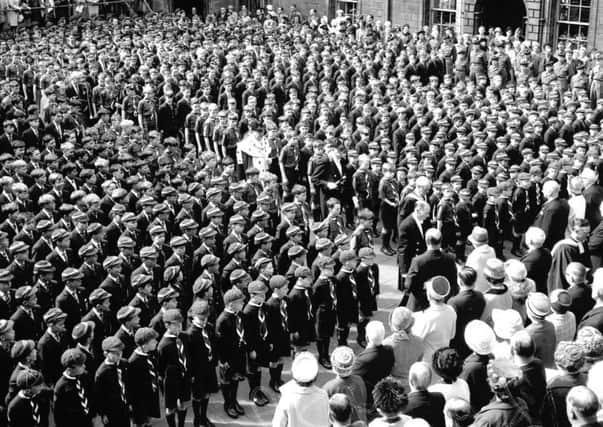Middle-class being wiped out as we head back to Victorian times – Helen Martin


As the rich get richer, the poor get poorer. In between there is “the middle-class” – seen as comfortable, and traditionally deemed to be neither rich or poor.
Go back even two decades and the middle class would be defined as owning their own home, having private health insurance, enjoying a couple of family holidays abroad every year, eating out, having a smart car – or two, and some sending the kids to private schools.
Advertisement
Hide AdAdvertisement
Hide AdThose who today would earn over £100,000 would have believed they were middle class. But people earning this much money are now classed professionally by the OECD (the Organisation for Economic Co-operation and Development) as well above that.
The official assessment of a middle-class salary, based on earnings between three-quarters of the national average salary up to double the average, is absolutely shocking. In the UK that equates to anything from £20,670 to £55,120, and represents almost 60 per cent of the population.
Just how far in today’s market, would £20-£21,000 go in terms of home and car ownership, holidays and private school fees?
According to the OECD, the middle-class is being wiped out by low (or zero) wage rises, the effect on earnings by robots and technology, the hugely inflated costs of housing and many other essentials, along with the fact that those in the economic “middle” are more heavily in debt than the rich or the poor.
Advertisement
Hide AdAdvertisement
Hide AdHence, with our wealth gap becoming so much wider, we are heading back to Victorian times, with no indication of politicians attempting to do anything to prevent such a tragedy. At least all that explains why Parliament says the economy is growing, yet no-one except those at the financial peak are aware of it.
The OECD economic report isn’t confined to the UK and includes what are described as established and advanced democracies across the world.
It’s an international problem. And in each country, it’s too big and wide a gap and too complicated to be solved even by progressive taxation.
But it’s certainly not helped by local councils increasing charges for essential services whether that’s council tax, garden waste collection or work-parking levies.
Advertisement
Hide AdAdvertisement
Hide AdSome Scottish local authorities (though not Edinburgh) are making almost one million pounds each profiting from burial and cremation charges! And some (Edinburgh, for example) pay their Chief Exec over £200,000!
In this world, foreign aid is a humane necessity. Yet despite growing poverty and food banks here, the UK pays 0.7 per cent of its GDP, £14.55 billion. That’s a higher percentage than Germany, France, Italy, Canada or Japan – and higher than the US which pays £25.6 billion but just 0.17pc. When will our rising number of impoverished children and parents who can’t afford to eat, be recognised as in need of aid?
Perhaps the well-heeled Westminster politicians who think it’s right to routinely park their millions in off-shore tax havens, prefer to think of GDP as good news, and dismiss the facts about growing poverty, thinking (as Theresa May often hints when she’s challenged by Corbyn) that poverty is all about lazy folk who aren’t prepared to work.
Suffering from such delusions may be what stops them learning to “mind the gap”.
Advertisement
Hide AdAdvertisement
Hide AdKids should make dens and build swings not blame their parents
A ScotRail survey says 77 per cent of parents are pressurised by kids to arrange big days out in school holidays. Och, it’s the parents’ fault. Over-50s will remember holidays were about playing with pals, building swings, making dens, inventing games, looking for wee fish and tadpoles in burns, being free from mum and dad and being independent. Such changed days.
Trains beat planes
RYANAIR and Easyjet are budget airlines, cheap, basic, and their flights used to be plentiful and efficient, enabling folk who couldn’t afford standard airline fares to soar to the sun.
Businesses are struggling today with a tighter economy, Brexit uncertainty, and rising costs. It’s not surprising Ryanair has made a major cutback on its flights to and from London and Edinburgh. If demand, costs and profits return, so will the flights. That’s business. Besides all that, increasingly commuters go by train to London and Edinburgh, straight to city centres. It’s quicker than spending three to four hours in airports, going through security twice, then having to travel in and out of the Capitals.